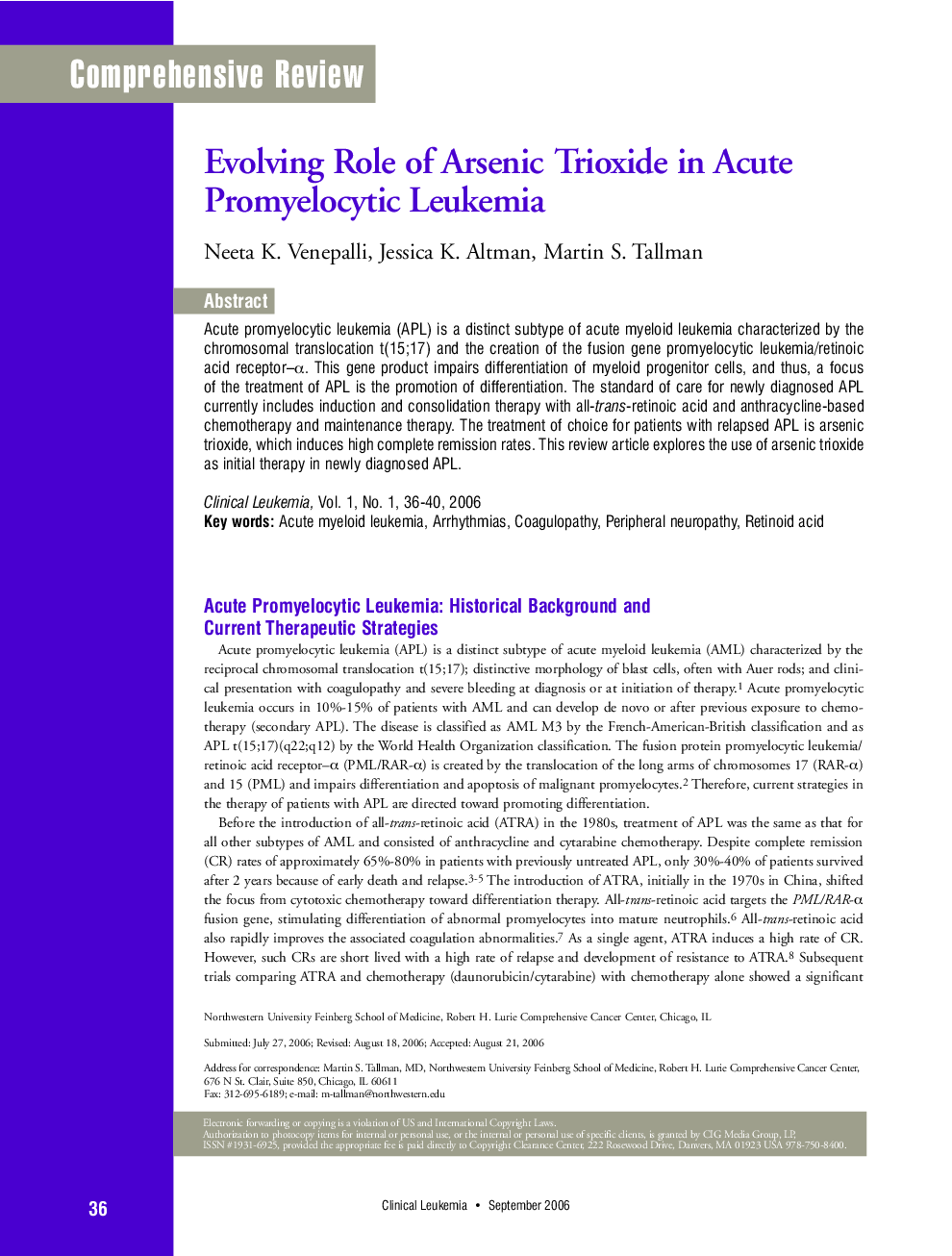| Article ID | Journal | Published Year | Pages | File Type |
|---|---|---|---|---|
| 3981080 | Clinical Leukemia | 2006 | 5 Pages |
Acute promyelocytic leukemia (APL) is a distinct subtype of acute myeloid leukemia characterized by the chromosomal translocation t(15;17) and the creation of the fusion gene promyelocytic leukemia/retinoic acid receptor–α. This gene product impairs differentiation of myeloid progenitor cells, and thus, a focus of the treatment of APL is the promotion of differentiation. The standard of care for newly diagnosed APL currently includes induction and consolidation therapy with all-trans-retinoic acid and anthracycline-based chemotherapy and maintenance therapy. The treatment of choice for patients with relapsed APL is arsenic trioxide, which induces high complete remission rates. This review article explores the use of arsenic trioxide as Initials therapy in newly diagnosed APL.
